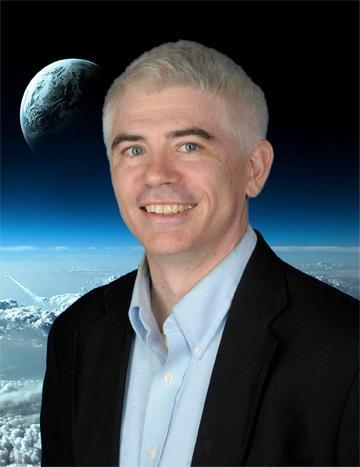Dan Vergano wants his readers to understand what’s happening in science today — and why it matters.
Vergano, a Washington D.C.-based science reporter for BuzzFeed News, said his goal is to explain the complex hidden science behind changes in society. Vergano is on University of Wisconsin’s campus this week as the science writer in residence.
“I’m a science reporter, and my goal has always been to write about the science behind things that matter to people,” he said. “Not how your dishwasher works but big economic or technological trends or scientific trends in our society that are affecting the way we’re going to live in the future or the way we live now.”
Vergano spoke with The Badger Herald before giving a speech Tuesday at Memorial Union on the challenges involved in the intersection of science writing and digital media.
Vergano has spent his time on campus talking to faculty and students, giving his lecture and experiencing the “highs and lows of a very meaningful basketball game,” he said.
At least Duke lost in science metrics bracket — http://t.co/bY0iVBkDWj Lost my bracket here, too. #metricsmania pic.twitter.com/oGc0pGNBEC
— Dan Vergano (@dvergano) April 8, 2015
Science reporting faces a challenge in today’s digital world, Vergano said. While there are still several science journals around, he said many struggle to ensure large audiences see their work.
To do this, Vergano said, publishers need to commit themselves to transitioning to a strong digital platform.
“The big transition in science reporting has been that there was stable platforms that have wide audiences for a long time,” he said. “Because the advertising market has collapsed for journalism, those outlets have fallen away, and now it’s left for a bunch of niche markets that have a hard time reaching as many people as they did in the past.”
Vergano emphasized that BuzzFeed is much more than its listicles, saying they have a large news staff “seriously committed to doing hard news, doing good news in an engaging way.”
“It feels a lot like when I joined USA Today 15 years ago,” Vergano said. “It’s the same energy, the same vigor and even more interest in getting at the story behind the story.”
Vergano began his career at the Pentagon with policy analysis and engineering. After perceiving that news stories, even smaller ones, received a lot more attention and had a larger impact on fixing problems, he decided to become a reporter.
Science reporting became a niche for Vergano, who landed at USA Today five years after switching careers.
UW has many people considering how to write and think about science in ways that align with Vergano’s own ideas, he said.
“As a university it’s nice to have an animal from the zoo come over and you can poke and prod it and maybe get a dose of how life looks to one of the animals in the cage,” he said.
In Wisconsin for 5 mins and already getting push polls on computer. Who sez 2016 campaign hasn't started? pic.twitter.com/l3h1zqzOsl
— Dan Vergano (@dvergano) April 6, 2015
Vergano, who also worked at National Geographic before joining BuzzFeed News this year, said there has not been as much of a change in the transition between publications as one might think.
“The whole question is always how do we pitch a story to our audience that they’re going to be interested in,” Vergano said. “That changes with the audience of each of those places, but it’s the same question.”


